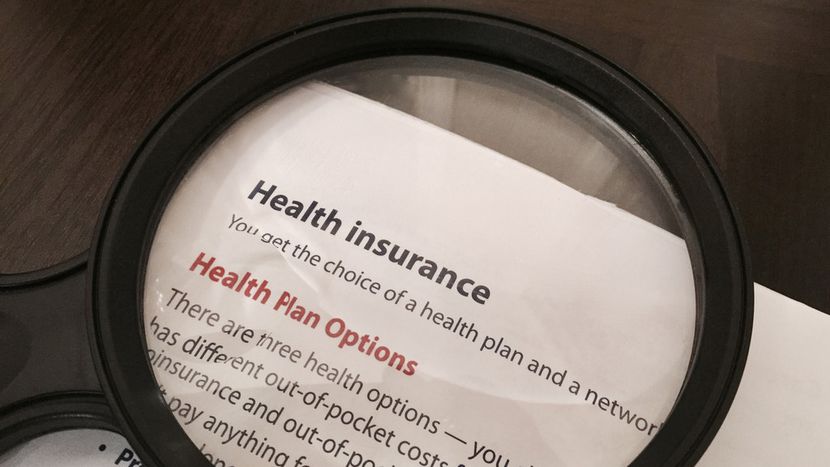By John C. Goodman
Originally posted at Forbes, October 2016
When the rest of the nation goes to the polls in November, residents of Colorado will vote on Amendment 69. If it passes, they will give a government body called ColoradoCare virtually complete control over all health care in the state.
Complete control? Yes, complete. For all practical purposes employees will no longer have access to the employer health care plans they have been enjoying. Seniors will soon find out that Medicare no longer functions the way it used to. Low-income families will discover the same is true for Medicaid.
In fact, in a real sense, everyone will be in the same system regardless of whether they are covered by Medicare, Medicaid or private insurance. They will pay the same prices, face the same treatment guidelines, and endure the same shortages.
How is that possible you must be thinking? Federal law is supposed to protect the health insurance plans of large companies from meddling by state governments. Medicare is a completely federal program. And even Medicaid functions under strict federal regulation.
So how can Colorado tell all these folks what to do? It can’t. But it can do two other things.
First, Colorado, like other states, has the power to impose price controls in just about any market within the state’s borders. Under Amendment 69, no doctor will be able to practice medicine or deliver services to any patient unless the fee charged is no greater than the fee set by ColoradoCare. Ditto for hospitals and other providers. Private insurance, Medicare, Medicaid, etc. are all on the buyer side of the market. But they can’t buy if the providers are not allowed to sell.
By way of enforcement, Amendment 69 stipulates that ColoradoCare handles all health billing. If a patient is on Medicare or any other plan, the physician will bill ColoradoCare, ColoradoCare will bill the plan, and ColoradoCare will pay the physician. In theory, ColoradoCare could pay the doctor a different fee than Medicare allows.
Take something straightforward, like the free wellness exam seniors are supposed to be entitled to under Medicare. Suppose ColoradoCare decides this service is wasteful. It will have the power to set the amount that physicians can accept for that service at zero, no matter who pays. In short order, there will be no more wellness exams for seniors.
ColoradoCare could also decide that the fee for care delivered by a specialist is zero unless the patient has been referred by a general practitioner – rationing access to specialist care the way some HMOs do. It could get rid of concierge medicine (or direct pay services) by setting the price for those services at zero as well.
Since the proponents of Amendment 69 frequently point admiringly to the experience of other countries, looking at the way other health systems operate may help imagine what ColoradoCare will do. For example, ColoradoCare might decide to classify pregnancies as low risk and high risk and then specify that only midwives may be paid for attending low risk pregnancies. Only high risk pregnant women would have access to obstetricians. The Netherlands already does this. It has the highest perinatal mortality rate in western Europe.
ColoradoCare could also refuse to pay for advanced cancer drugs if it judges their cost is too high relative to the additional months of life they promise to produce. That’s what happens in Britain. It has the worst cancer survival rates in western Europe.
Given the obsession the Amendment’s backers have with cost control, it is almost certain ColoradoCare’s coverage will look more like Medicaid than employer provided insurance.
The second thing that Colorado can do is levy taxes. The Amendment imposes a new 10 percent payroll tax and a new 10 percent tax on all non-wage income. Individuals and employers pay these taxes whether they buy health insurance or not. If Colorado gets federal approval for an Obamacare 1332 waiver, employer sponsored insurance will disappear in a flash as employers dump their plans without penalty.
Medicaid will operate as it always has except ColoradoCare will contract with Colorado to be the state’s Medicaid provider. Low-income families will find that their formerly free care will now cost an additional 10 percent of their paychecks.
People on Medicare who think they have already paid for their insurance with Part B and Part D premiums will find they must pay more: the new tax on wage income and an additional 10 percent tax on pensions, annuities, IRA and 401(k) withdrawals, rents, dividends, and interest. Although Colorado state law currently exempts $24,000 of retirement income from taxation for each person 65 or older, the exemption is in statute and can be eliminated by a cash strapped legislature.
That brings us to the way ColoradoCare will actually function. In addition to setting the price state licensed providers can accept for every medical product and service, ColoradoCare will operate a central billing and payments system to track and control payments. It will operate a central purchasing system to negotiate for all drugs, medical devices, and other products. It will create a central database of medical records for control, management, and research.
Independent estimates show that ColoradoCare’s budget will not balance without additional tax increases. Those who wrote Amendment 69 foresaw this. ColoradoCare can hold an election to increase taxes once a year. The Amendment exempts the tax increase elections from all existing Colorado fair election laws. ColoradoCare will set the rules for all of its elections, determine who can vote in them, set them up, and certify their results.
Want a tax increase? It’s simple. Schedule the vote for tomorrow at the top of Pike’s Peak and bus your supporters in.
Though the elected Board in control of ColoradoCare cannot be recalled by voters, it can purge troublesome members by a majority vote and handpick their replacements. As icing on the corrupt elections cake, Amendment 69 allows ColoradoCare to accept gifts, grants, and donations from any source.

0 Comments